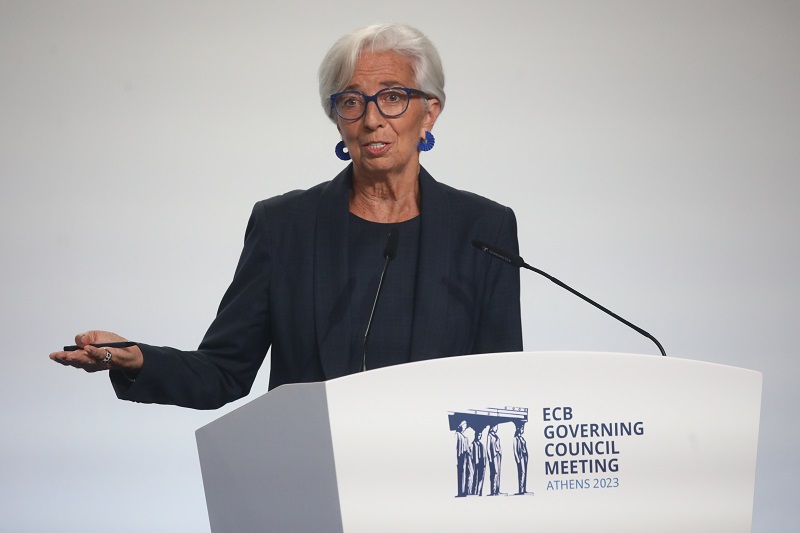What he said about the central bank’s decision to “freeze” its interest rates and the risks to growth and inflation
Today, the head of the European Central Bank (ECB), Christine Lagarde, gave credit for restoring the Greek economy to pre-covid levels.
During the press conference she gave after the ECB Governing Council meeting in Athens, and more specifically in the historic building of the Bank of Greece, Christine Lagarde explained the reasons why they decided today to keep interest rates unchanged. However, as he stated, “the fact that we keep interest rates stable, does not mean that we will never increase them” adding that this will depend on the economic data of the moment. He also underlined that “the ECB’s futures will ensure that its fundamentals are set at sufficiently restrictive levels for as long as necessary to ensure timely achievement of the inflation target”.
With regard to the Greek economy and more specifically to Greek bonds, Christine Lagarde pointed out that they are now eligible to participate in the ECB’s repurchase programs, but these are now “frozen”. The only exception is the PEP repurchase program (this is the one of the pandemic) in which, however, the Greek bonds participated anyway. Today’s governing board did not, as it said or itself, discuss what happens next with this program, whenever the reinvestment of part of the bonds already in the ECB’s portfolio continues after they expire.
The head of the ECB largely attributed today’s decision to temporarily freeze interest rates to rising risks after acknowledging that economic activity in the euro zone remains weak. In fact, as he explained, “growth could be lower if the effects of monetary policy turn out to be stronger than expected. A weaker global economy would also weigh on growth. Russia’s unjustified war against Ukraine and the tragic conflict caused by the terrorist attacks in Israel are key sources of geopolitical risk. This may result in businesses and households facing greater uncertainty about the future, which could further slow growth.”
On the issue of interest rates the ECB acknowledges that due to the current monetary policy, long-term interest rates have risen significantly, funding has become more expensive for banks and interest rates on business loans and mortgages have risen again in August to 5% and 3.9 % respectively. However, she avoided taking a position on the opening of the gap between interest rates on deposits and loans, stating that this is not the competence of the ECB, referring the matter to the Competition Commission to be dealt with.
In any case, he argued, higher lending rates led to a further sharp drop in credit demand in the third quarter. In addition, credit standards for loans to businesses and households were further strengthened. Banks are more concerned about the risks facing their customers and less willing to take risks themselves.








